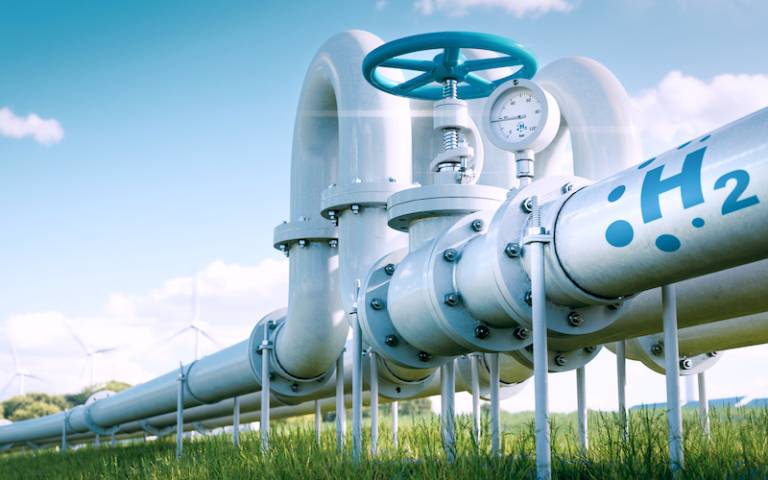UCL researcher contributes to new EPSRC-funded Hydrogen Hub
13 July 2023
Paul Dodds from the UCL Institute for Sustainable Resources to work in new collaborative, expert centre to explore the economic viability of novel hydrogen and ammonia technologies

The EPSRC has announced the launch of two new hydrogen energy research hubs that are funded with a total of £25m and UCL is a core member of both hubs.
Hydrogen and hydrogen-based, low-carbon liquid fuels, such as ammonia, are essential for the UK to reach net zero emissions by 2050. Hydrogen is a highly versatile energy vector suitable for use in many hard-to-decarbonise sectors where other energy options, such as electricity, are not suitable. These two hubs will drive forward the national effort in hydrogen research that is needed to facilitate this critical area of technology to meet industry and government needs.
The UK-HyRES Hydrogen Hub, led by the University of Bath, aims to become an international leader in hydrogen research and to deliver practical hydrogen and alternative liquid fuel technologies that are safe, acceptable, and environmentally and economically sustainable. Paul Dodds of the UCL Energy Institute and the UCL Institute for Sustainable Resources is leading the economics crosscutting area to explore the economic viability of novel hydrogen and ammonia technologies.
The Hydrogen Integration for Accelerated Energy Transitions (HI-ACT) Hub, led by the University of Newcastle, will evaluate routes to effective integration of hydrogen into the wider energy landscape, addressing interactions with electricity, natural gas, heat, and transport. By considering a whole systems perspective, the research shall identify where hydrogen offers most value. Professor Paul Dodds will lead on UK policy. He will explore the potential roles of hydrogen across the UK economy, with the aim of identifying key decision points through the transition and the implications of these decisions. Paul noted:
“These two new hydrogen hubs will contribute to developing new hydrogen technologies, understanding the appropriate roles of hydrogen and accelerating the uptake of sustainable hydrogen over the coming decades. I’m excited to be able to contribute to making both hubs a success.
Each hub has been awarded £10 million funding by EPSRC. UCL's role in these two hubs is the next stage in the Energy Transitions Modelling Lab's (ETML) longstanding hydrogen systems and policy research programme. Over the last twenty years, ETML's research has had substantial impacts on UK hydrogen policy through a series of a journal papers, reports and the first book on hydrogen energy socioeconomics and policy.
Professor Dame Ottoline Leyser, Chief Executive of UKRI, noted:
“The government has set a target of reaching net zero emissions by 2050, requiring rapid decarbonisation of our energy systems. UKRI is leveraging its ability to work across disciplines to support this ambition through a major portfolio of investments that will catalyse innovation and new green energy systems. The funding announced today will support researchers and innovators to develop game changing ideas to improve domestic, industrial and transport energy systems.
Links
Image credit: iStock.com
 Close
Close

